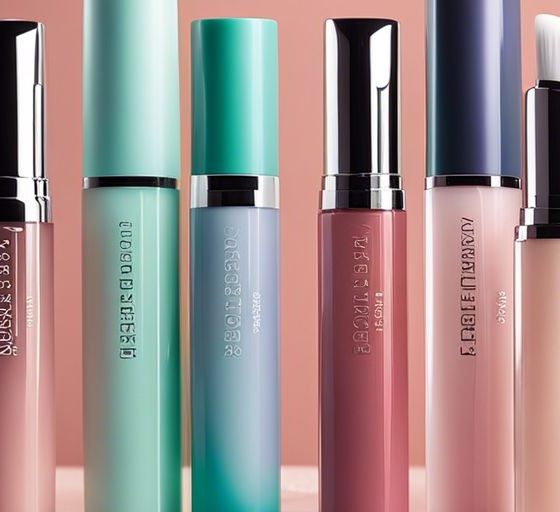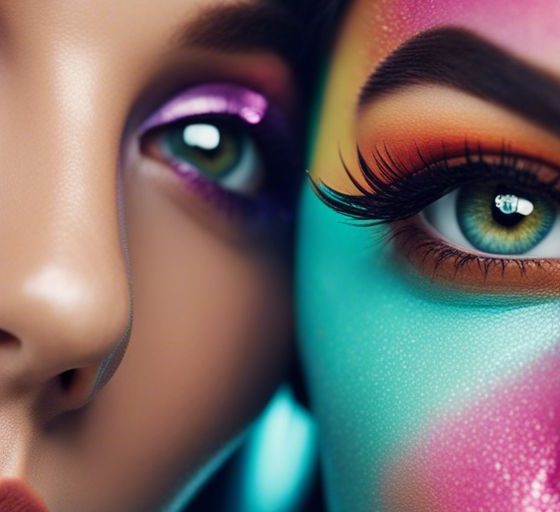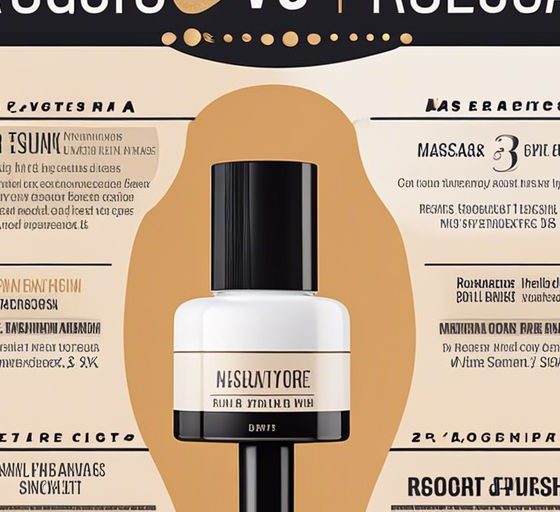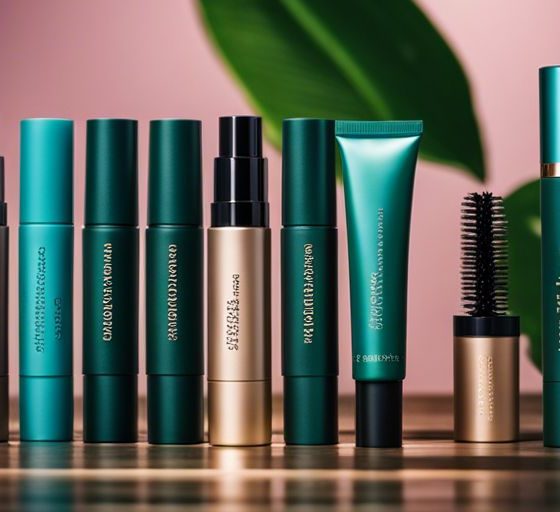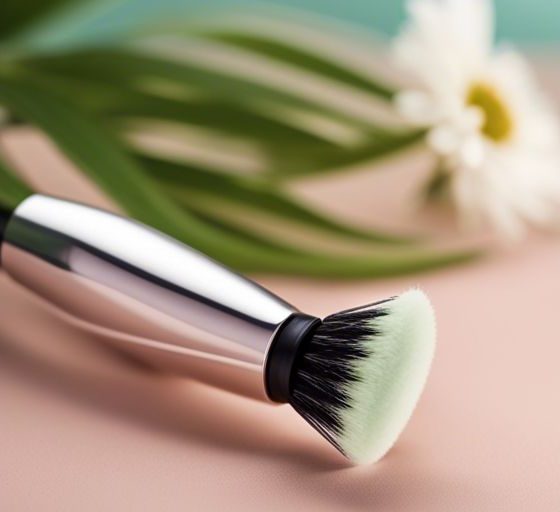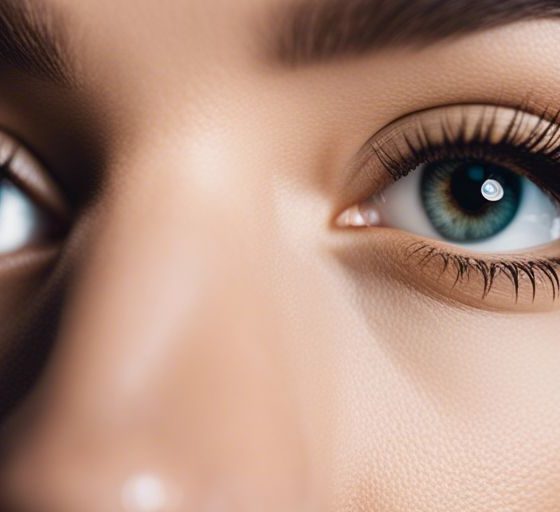Exploring the ever-evolving world of anti-aging skincare technology can be both fascinating and overwhelming. With an array of groundbreaking innovations hitting the market, it’s crucial to stay informed on the latest trends to ensure you are making the best choices for your skin. From nanotechnology to stem cell research, the industry is constantly pushing boundaries to combat the signs of aging more effectively than ever before.

The Science of Skin Aging
While many people seek ways to combat the signs of aging, it is necessary to understand the science behind skin aging. Skin aging is a natural process that is influenced by both intrinsic and extrinsic factors. Intrinsic aging, also known as chronological aging, occurs gradually over time due to factors such as genetics and hormone changes. On the other hand, extrinsic aging is primarily caused by external factors like sun exposure, pollution, and lifestyle choices.
Understanding Skin Biology and Aging
The skin is the body’s largest organ and serves as a protective barrier against external threats. It is composed of multiple layers, with the outermost layer called the epidermis and the inner layer called the dermis. As we age, the production of collagen and elastin, which are necessary proteins for maintaining skin elasticity and firmness, decreases. This leads to sagging skin, fine lines, and wrinkles.
External Factors Contributing to Skin Aging
- Sun exposure: UV rays can cause damage to the skin, leading to premature aging, hyperpigmentation, and an increased risk of skin cancer.
- Pollution: Environmental pollutants can penetrate the skin and create free radicals, causing oxidative stress and accelerating the aging process.
- Unhealthy habits: Smoking, poor nutrition, and lack of exercise can all contribute to skin aging by depriving the skin of necessary nutrients and oxygen.
This combination of external factors can have a significant impact on the skin’s appearance and overall health. It is crucial to protect the skin from these aggressors by incorporating sunscreen, antioxidants, and a healthy lifestyle into your skincare routine. This proactive approach can help slow down the aging process and maintain youthful-looking skin for longer.
Innovations in Anti-Aging Ingredients
Peptides and Their Skin Rejuvenation Properties
Clearly, peptides have revolutionized the field of anti-aging skincare with their powerful skin rejuvenation properties. An vital component in many anti-aging formulations, peptides are small chains of amino acids that help stimulate collagen production, improve skin elasticity, and reduce the appearance of fine lines and wrinkles.
Retinoids: The Timeless Anti-Aging Staple
On the forefront of anti-aging ingredients are retinoids, a timeless staple known for their proven efficacy in reducing signs of aging. Derived from Vitamin A, retinoids work by increasing cell turnover, stimulating collagen production, and fading age spots and discoloration.
Retinoids are recommended for use in the evening due to their photo-sensitivity, and it is important to introduce them gradually into your skincare routine to minimize any potential irritation.
Antioxidants: Fighting Free Radicals
Another key player in anti-aging skincare are antioxidants, which work to combat free radicals and prevent oxidative stress on the skin. Common antioxidants like Vitamin C, Vitamin E, and green tea extract help neutralize free radicals, reduce inflammation, and protect the skin from environmental damage.
Skin exposed to pollutants and UV radiation can benefit greatly from antioxidants, as they help maintain the skin’s health and youthfulness.
Growth Factors and Their Role in Skin Regeneration
Innovations in anti-aging skincare have led to the inclusion of growth factors, which play a crucial role in skin regeneration and repair. These proteins help stimulate cell proliferation, collagen synthesis, and improve skin texture and firmness.
- Collagen synthesis
- Cell proliferation
- Skin regeneration
Any anti-aging regimen can benefit from incorporating products with growth factors, as they promote overall skin health and vitality.
The Emergence of CBD in Skincare
For instance, the emergence of CBD in skincare has garnered attention for its anti-inflammatory and antioxidant properties. CBD, derived from the hemp plant, is known for its calming effects on the skin, reducing redness, and soothing irritation.
Factors such as anti-inflammatory and antioxidant properties make CBD a promising ingredient in anti-aging skincare formulations, offering a natural alternative to traditional ingredients.
Cutting-Edge Skincare Technologies
Now, let’s explore into the cutting-edge skincare technologies that are revolutionizing the anti-aging industry. These advancements are paving the way for more effective and personalized skincare treatments that cater to individual needs and concerns.
The Power of Personalized Skincare Regimens
Skincare has entered a new era with the rise of personalized skincare regimens. By utilizing advanced technology such as AI and machine learning, skincare brands can now analyze individual skin concerns and create customized routines tailored to each person’s unique needs. This personalized approach ensures that customers receive the most effective and targeted treatments for their specific skin issues, leading to more visible and long-lasting results.
Genetic Profiling and Customized Skincare
Skincare is also incorporating genetic profiling into customized skincare solutions. By analyzing an individual’s DNA, skincare experts can identify genetic predispositions that impact skin health and aging. This information allows for the creation of personalized skincare products that address specific genetic factors, leading to more targeted and efficient anti-aging treatments.
Genetic profiling in skincare not only helps in creating personalized products but also enables individuals to understand their skin at a genetic level. By uncovering genetic traits that contribute to skin aging, personalized skincare approaches can provide more effective solutions tailored to each person’s unique genetic makeup.
Nanotechnology in Targeted Treatments
Skincare is embracing nanotechnology to develop targeted treatments that deliver active ingredients deeper into the skin for enhanced results. Nanoparticles are used to encapsulate key ingredients, allowing for better absorption and penetration into the skin’s layers. This technology enables precise delivery of potent anti-aging compounds, maximizing their efficacy and ensuring visible improvements in skin quality.
Profiling the skin at a molecular level with nanotechnology allows for a more precise and effective approach to anti-aging skincare. By targeting specific skin concerns with nano-sized particles, skincare products can deliver potent ingredients directly to where they are needed most, resulting in accelerated skin rejuvenation and noticeable improvements in skin texture and appearance.
Advancements in LED Light Therapy
An exciting advancement in anti-aging skincare is the use of LED light therapy to address various skin concerns and promote collagen production. LED devices emit specific wavelengths of light that penetrate the skin and stimulate cellular activity, boosting collagen and elastin production. This non-invasive treatment can help reduce wrinkles, improve skin tone, and enhance overall skin health.
It is crucial to highlight the benefits of LED light therapy in promoting skin rejuvenation and combating signs of aging. The treatment is safe, gentle, and effective, making it a popular choice for individuals seeking non-invasive solutions for improving skin texture and appearance. By harnessing the power of LED technology, skincare professionals can provide clients with innovative anti-aging treatments that deliver remarkable results.
Breakthroughs in Topical Delivery Systems
Microencapsulation for Enhanced Absorption
Unlike traditional skincare formulations, recent advancements have focused on incorporating microencapsulation technology to enhance the absorption of active ingredients into the skin. Microencapsulation involves encapsulating active ingredients in tiny particles that can penetrate deeper into the skin layers, ensuring higher efficacy and prolonged release. This innovative approach helps protect delicate ingredients from oxidation and degradation, increasing their stability and bioavailability.
Smart Polymers and Controlled Release
Breakthroughs in skincare science have led to the development of smart polymers that respond to specific stimuli, allowing for controlled release of active ingredients. These polymers can adjust their structure in response to environmental factors such as pH levels or temperature, releasing key ingredients at the optimal time and location within the skin. This targeted delivery system enhances the effectiveness of anti-aging formulations while minimizing potential side effects.
Any skincare product incorporating smart polymers ensures a precise and tailored approach to addressing specific skin concerns. By regulating the release of potent ingredients, these formulations offer a more efficient way to nourish and rejuvenate the skin, promoting long-lasting results and a healthier complexion.
Topical The Role of Skin’s Microbiome in Topical Delivery
Topical skincare products are now designed to work in harmony with the skin’s microbiome, the ecosystem of microorganisms that naturally inhabit the skin. Research has shown that maintaining a healthy balance of skin flora is important for overall skin health and appearance. By incorporating prebiotics, probiotics, and postbiotics in formulations, skincare products can support the skin’s natural defense mechanisms and promote a more robust barrier function.
An The Role of Skin’s Microbiome in Topical Delivery
It is crucial to understand the impact of the skin microbiome on topical delivery systems, as disruptions in the skin’s microbial balance can lead to various skin issues, including inflammation, sensitivity, and premature aging. Formulations that support the skin’s microbiome can help restore and maintain a healthy skin barrier, leading to improved absorption of active ingredients and enhanced overall skin vitality.

The Intersection of Nutrition and Skincare
Nutricosmetics and Beauty Supplements
To meet the growing demand for holistic approaches to skincare, nutricosmetics and beauty supplements have gained popularity for their promise of enhancing skin health from the inside out. These products are formulated with a blend of vitamins, minerals, antioxidants, and other nutrients that target specific skin concerns and provide support for overall skin rejuvenation. By incorporating these supplements into your daily routine, you can complement your topical skincare regimen and boost the efficacy of your anti-aging efforts.
The Impact of Diet on Skin’s Aging Process
Our diet plays a crucial role in skin aging, affecting factors such as collagen production, inflammation, and oxidative stress. Certain nutrients like vitamins C and E, beta-carotene, and omega-3 fatty acids have been shown to have anti-aging benefits by promoting skin elasticity, hydration, and protection against UV damage. Ensuring a balanced diet rich in fruits, vegetables, whole grains, and healthy fats can help maintain youthful-looking skin and prevent premature aging.
Beauty
Functional Foods for Skin Health
Functional foods are a category of products that offer dual benefits for both nutrition and skincare. These foods are enriched with bioactive compounds like collagen peptides, probiotics, and antioxidants that support the skin’s structure, improve elasticity, and combat free radical damage. Incorporating functional foods such as green tea, turmeric, and berries into your diet can help enhance your skin’s resilience and radiance from within.
Health
In terms of anti-aging skincare, health is a key element in achieving lasting results. By focusing on a nutrient-dense diet, supplementing with targeted beauty products, and incorporating functional foods into your meals, you can support your skin’s natural regeneration processes and maintain a youthful appearance. Keep in mind, true beauty starts from within, and investing in your health is the foundation for radiant and age-defying skin.
Non-Invasive Anti-Aging Procedures
Micro-Needling and Collagen Induction Therapy
Keep your skin looking youthful with micro-needling and collagen induction therapy. These non-invasive procedures involve the use of tiny needles to create controlled micro-injuries on the skin, stimulating collagen and elastin production. This process helps in reducing fine lines, wrinkles, and improving skin texture, giving you a more youthful appearance without the need for surgery.
The Evolution of Laser Skincare Treatments
Any discussion of non-invasive anti-aging procedures would be incomplete without mentioning the evolution of laser skincare treatments. Laser technologies have come a long way, offering a wide range of options to address various skin concerns such as pigmentation, age spots, and even tightening sagging skin. These treatments are not only effective but also have minimal downtime, making them a popular choice for those seeking to rejuvenate their skin.
Understanding the advancements in laser skincare treatments is crucial in making informed decisions about your anti-aging routine. With the latest laser technologies, you can target specific skin issues with precision, resulting in smoother, younger-looking skin. It’s imperative to consult with a skilled dermatologist or skincare professional to determine the most suitable laser treatment for your unique skin concerns.
Ultrasound and Radiofrequency Therapies
An innovative approach to non-invasive anti-aging treatments is the use of ultrasound and radiofrequency therapies. These technologies work by delivering energy deep into the skin, stimulating collagen production and tightening loose skin. Ultrasound and radiofrequency therapies are safe and effective ways to improve skin firmness and elasticity, helping you achieve a more youthful appearance without surgery.
Radiofrequency treatments are particularly effective in targeting stubborn areas of sagging skin, such as the jawline and neck. This technology works by heating the skin’s deeper layers, promoting collagen remodeling and tightening loose skin. With a series of radiofrequency treatments, you can achieve noticeable improvements in skin laxity and achieve a more defined facial contour.

The Future of Anti-Aging Skincare
The Role of Artificial Intelligence and Machine Learning
Despite the remarkable advancements in anti-aging skincare, the future holds even more promise with the integration of Artificial Intelligence (AI) and Machine Learning (ML) technologies. These cutting-edge tools have the potential to revolutionize the way we approach skincare by offering personalized solutions based on individual skin type, concerns, and genetic makeup.
Next-Generation Anti-Aging Solutions
Any discussion about the future of anti-aging skincare would be incomplete without delving into Next-Generation Anti-Aging Solutions. These innovative products and treatments are designed to target key aging concerns at a deeper level, allowing for more effective and long-lasting results.
Plus, advancements in ingredients such as retinoids, peptides, and growth factors are opening up new possibilities for combating aging signs and rejuvenating the skin from within. These breakthroughs are paving the way for a new era of skincare that prioritizes both efficacy and safety.
Ethical Considerations and Sustainability in Skincare
With consumers becoming increasingly conscious of their impact on the environment and society, ethics and sustainability have become vital considerations in the skincare industry. Brands are now expected to adhere to ethical sourcing practices, use sustainable packaging, and support ethical labor practices throughout their supply chain.
Skincare companies are also under scrutiny to ensure that their products are cruelty-free and do not contain harmful ingredients that could endanger both the skin and the environment. By embracing transparency and accountability in their practices, brands can build trust with consumers and contribute to a more sustainable future for the industry.
Conclusion
From above, it is evident that the field of anti-aging skincare technology is rapidly evolving to meet the growing demands of consumers. With advancements such as personalized skincare solutions, innovative ingredients, and cutting-edge devices, individuals now have a plethora of options to target specific concerns and achieve youthful, radiant skin.
As technology continues to progress, we can expect even more exciting developments in anti-aging skincare. It is vital for consumers to stay informed about the latest trends and research in order to make well-informed decisions about their skincare routine. By embracing these advancements, individuals can enhance the health and appearance of their skin for a more youthful and vibrant complexion.
FAQ
Q: What are the latest trends in anti-aging skincare technology?
A: The latest trends in anti-aging skincare technology include ingredients such as retinol, hyaluronic acid, peptides, and antioxidants. Advanced delivery systems like microencapsulation and nanotechnology are also revolutionizing the way anti-aging products work.
Q: How do retinol and peptides help in combating signs of aging?
A: Retinol increases cell turnover, promotes collagen production, and reduces the appearance of wrinkles and fine lines. Peptides stimulate collagen synthesis, improving skin firmness and elasticity, thus reducing sagging and wrinkles.
Q: What role does hyaluronic acid play in anti-aging skincare?
A: Hyaluronic acid is a powerful humectant that attracts and retains moisture in the skin, plumping up fine lines and wrinkles for a smoother appearance. It also helps improve skin elasticity and firmness.
Q: How do antioxidants help in preventing premature aging?
A: Antioxidants like vitamin C, vitamin E, and green tea extract protect the skin from free radical damage caused by environmental stressors. They help prevent premature aging by neutralizing oxidative stress and promoting skin repair.
Q: What are some innovative delivery systems used in anti-aging skincare products?
A: Microencapsulation technology allows for targeted delivery of active ingredients into the skin layers. Nanotechnology enables deeper penetration of ingredients for enhanced efficacy. Liposomal delivery systems ensure better absorption and bioavailability of key anti-aging compounds.




